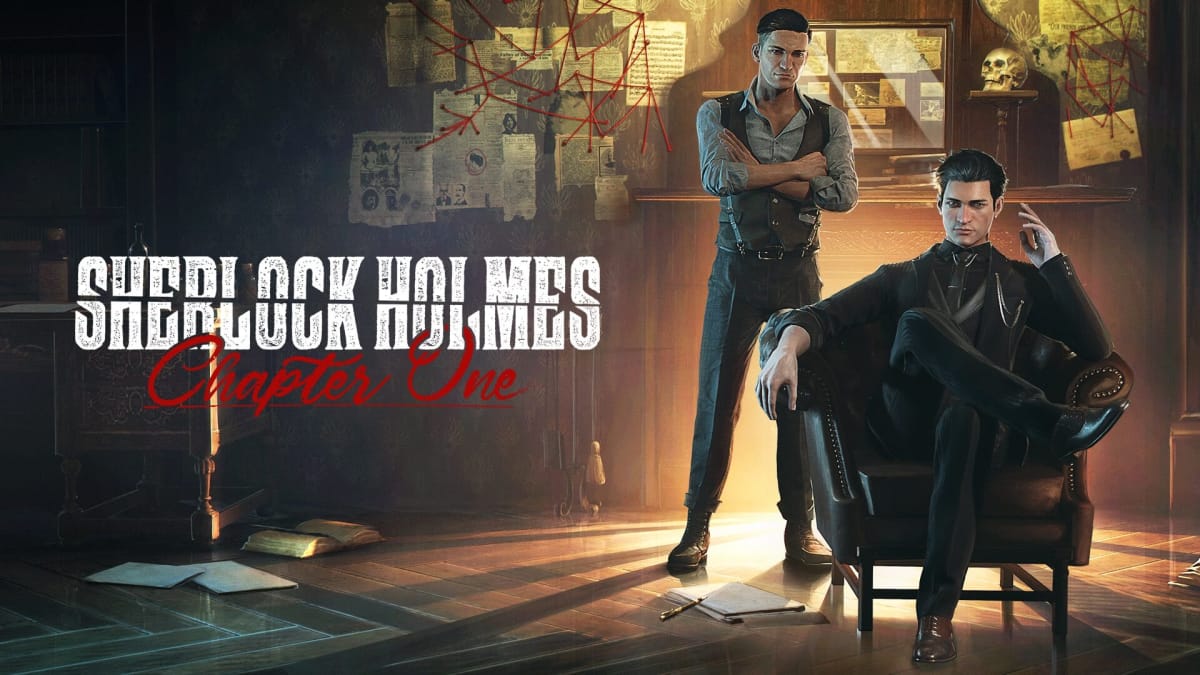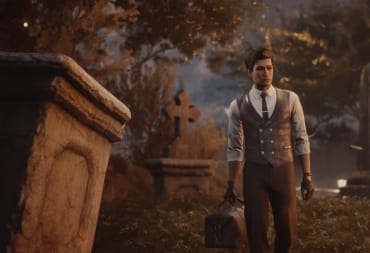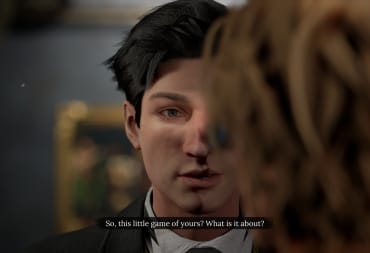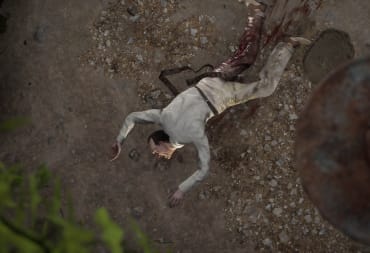The detective genre is an odd one. Many games purporting to be detective thrillers simply lead you by the nose down a linear series of clues and narrative beats, occasionally stopping to let you choose a dialogue option or piece together a very obvious lead. Sherlock Holmes Chapter One does not do that. It doesn't care if you're a master detective like its subject; instead, it lets you try and work things out for yourself, and if you fail, well, that's an innocent person sent to jail or worse. In this way, the latest game in Frogwares' long-running Sherlock Holmes series is a great fit for the open-world genre. It's very much up to you where to go, what to do, and whether you succeed or not.
Sherlock Holmes Chapter One Presents A Very Personal Mystery
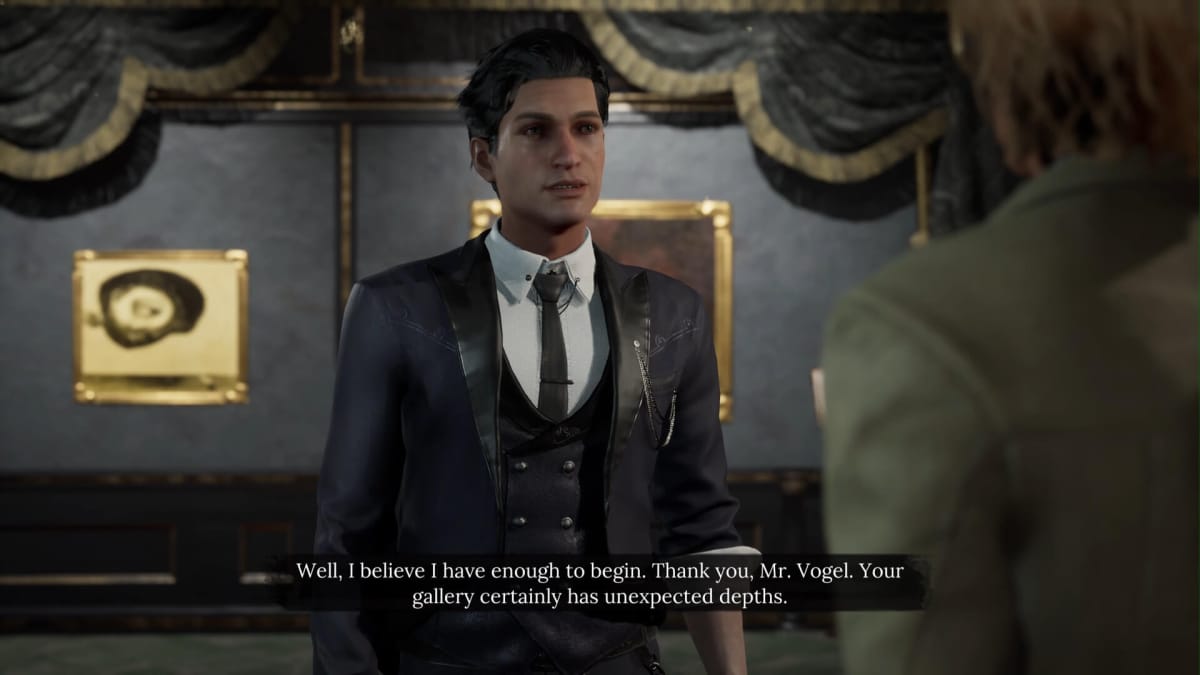
Unlike many Sherlock Holmes stories, in which the detective is more akin to a force of nature than a real human being, Sherlock Holmes Chapter One foregrounds Sherlock. He's traveling to the fictional Mediterranean island of Cordona in order to uncover the circumstances surrounding his mother's death, which may not be as simple as he once thought. This case remains your main focus for most of Sherlock Holmes Chapter One, but as you discover more about this story, other cases are given to you along the way. You might, for example, be investigating what happened to an old neighbor, only to find he's been murdered and get drawn into the inquiry.
Each mystery in Chapter One is compelling enough, and it's nice that there's an overarching story to follow as well. Cases are rarely linked directly to one another, but they do have tangential links to the main narrative, so they're not entirely unrelated. It helps that the central story is surprisingly heartfelt and powerful. Several moments towards the game's climax genuinely moved me, more so than any Frogwares game has up until this point. Not only is the studio maturing in the way it presents its detective gameplay, but Frogwares is learning to tell stories shot through with real human emotion.
It should be said that if you're expecting a detective game that wraps everything up in a neat little bow, Sherlock Holmes Chapter One won't satisfy you. This is Sherlock's story, and his personal journey is more important to Frogwares than the solutions to his cases. You won't get to find out whether you're right or not at the conclusion of each mystery; rather, you'll just have to trust that your instincts (and, by extension, Sherlock's) have seen you right. This can feel a tad unsatisfying from a gameplay perspective, but it's a clever way to reinforce the freedom of the gameplay. Violent crimes often don't have neat endings, after all.
You Are Your Own Detective In Sherlock Holmes Chapter One
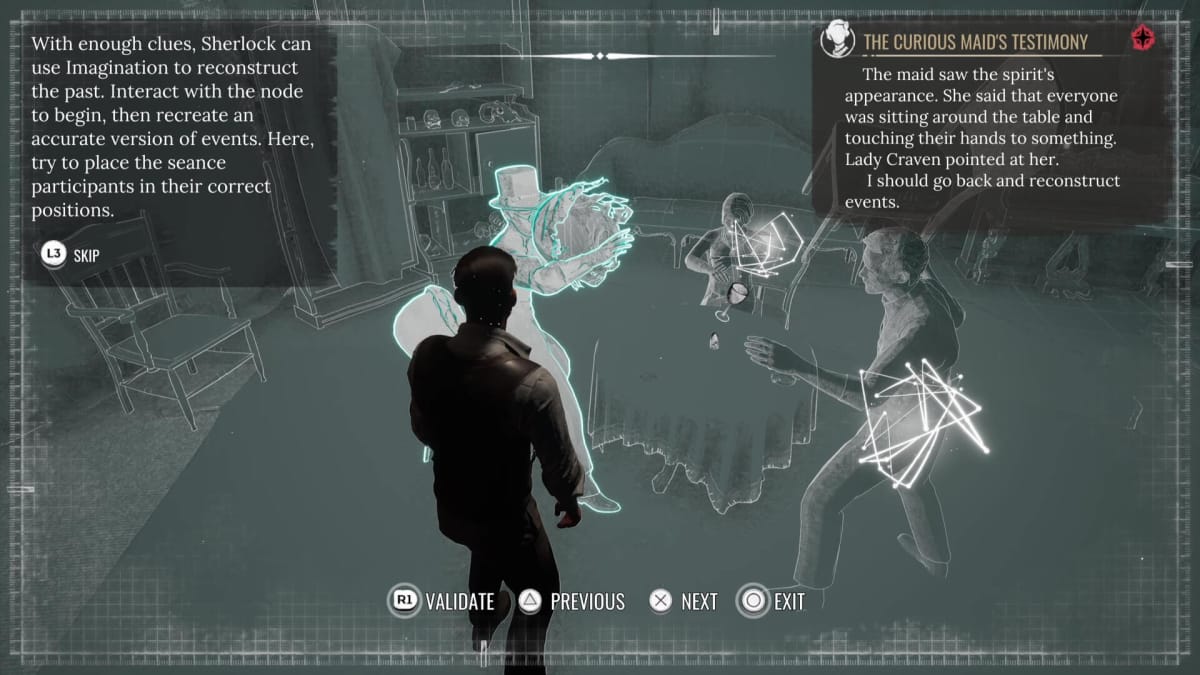
If you've played a previous Frogwares Sherlock Holmes adventure game, you'll likely recognize many of the gameplay elements in Chapter One. In each case, you must examine the crime scene for clues, question suspects, and dive into Sherlock's mind palace to piece together his thoughts. This time around, Frogwares has learned some lessons from The Sinking City; you're often left to your own devices to chase whatever leads you choose. Will you visit City Hall to pore through its records or head across town to the dig site to question some of the locals?
It almost always feels like you're arriving at conclusions based on your own ingenuity.
At its best, Sherlock Holmes Chapter One evokes the rewarding deductive gameplay of Return of the Obra Dinn, and that's not a comparison one should throw around lightly. You'll need to exercise some genuine deductive skill if you want to reach Chapter One's conclusion, but you can also fill in some of the blanks with guesswork, meaning it's nearly impossible to get too frustrated with the puzzles. At their worst, Frogwares' Sherlock Holmes games can feel like linear instruction-following simulators, but Chapter One rarely falls into this trap. It almost always feels like you're arriving at conclusions based on your own ingenuity.
Cases also have multiple solutions, as they have in previous Sherlock titles. Frequently, these solutions present moral quandaries that allow you to shape what your Sherlock's personality is to some extent. Is this criminal truly guilty if they were acting in self-defense? Should you bring someone corrupt to justice if letting them go free could help the wider world? It's even possible to be wrong about the person you've convicted, and Chapter One doesn't immediately tell you whether or not you were right in your conclusion. Sometimes, this makes the endings to cases feel a bit dissatisfying, but it's also nice that you're not instantly beaten around the head or praised for your genius.
In Sherlock Holmes Chapter One, The World Is Your Oyster
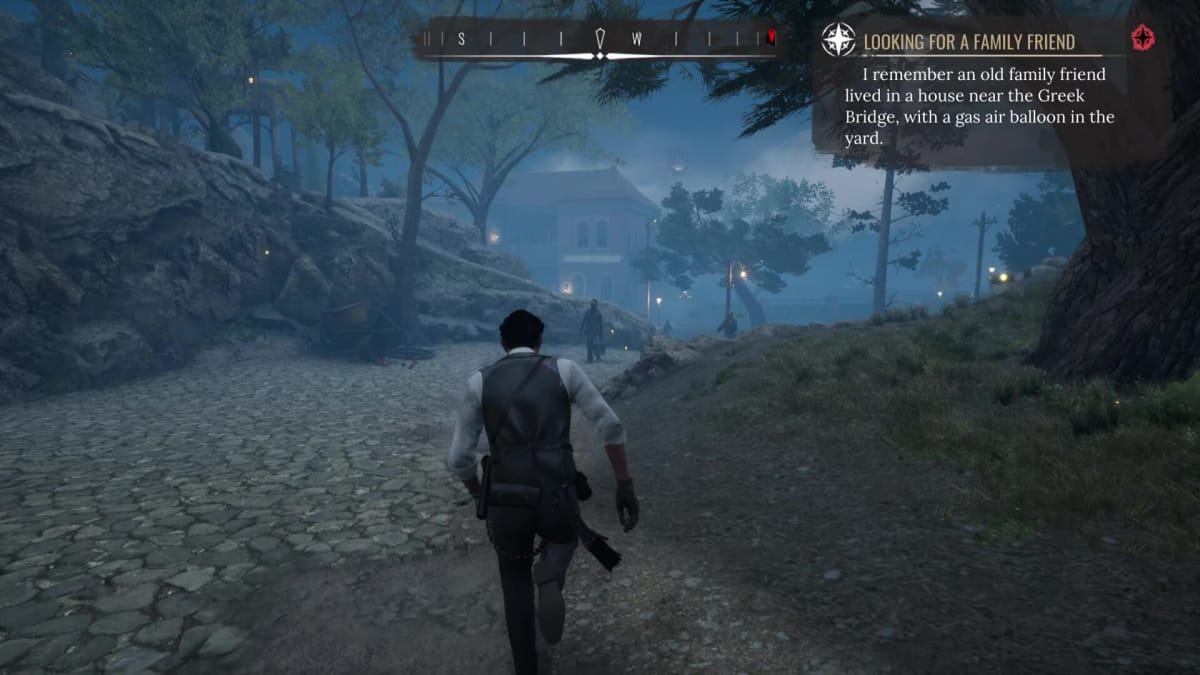
Another major new feature in Sherlock Holmes Chapter One is the open world of Cordona. You're not merely picking from a list of disparate locations this time; rather, you'll have to actually make your way to places you need to visit. Often, you're given little more than a street name, and sometimes not even that; you'll need to use your wits, knowledge of the island, and informational resources to find where you need to be. If you're wrong, Chapter One rarely gives you a hint; it simply leaves you to work out where you went wrong and correct your course. This is where the detective gameplay truly shines; finding your way around Cordona using your wits is a constant thrill.
Cordona is also home to many side cases, some of which Sherlock will discover while wandering the streets. You might overhear a conversation in which two people are discussing a violinist's recent misfortune, for example, or come across a poster promising to rid the island of ghosts. This helps cases to feel more organic; this early version of Sherlock doesn't have an office for people to visit, so he must prove himself by taking a proactive stance. Surprisingly enough, the side cases are often almost as fleshed-out as the main story, so they're more than just mere distractions, too. They're often worthy stories in and of themselves.
Finding your way around Cordona using your wits is a constant thrill.
It's unfortunate, then, that the open world often feels so empty. Despite the organic way in which you discover side stories, there isn't really much else to do on Cordona when you're not chasing a case. There's very little point in exploring; you'll be told when you need to go to certain areas, and going there before the appointed hour is usually a waste of time. Other than the odd case diversion, Cordona feels curiously empty and hollow as an open world. It often feels like you're not really supposed to be in the areas between major map points, as they're so underpopulated and lacking in extra content.
Unfortunately, Sherlock Holmes Chapter One Also Has Combat
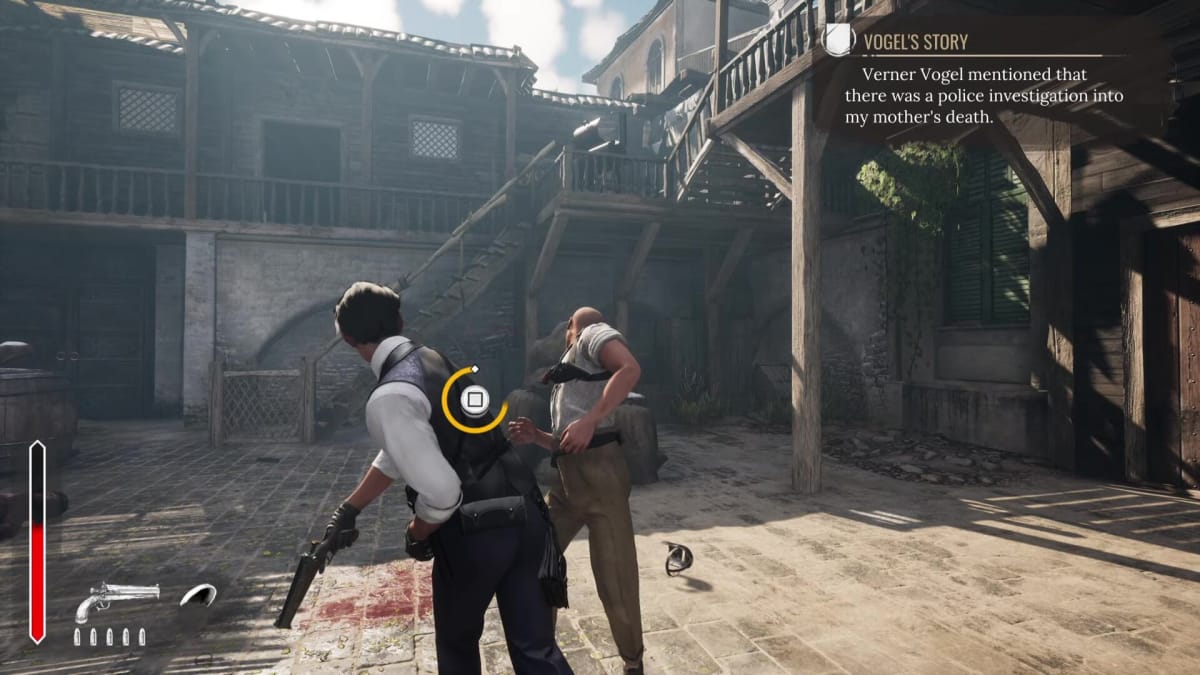
Since Sherlock Holmes Chapter One is trying to evoke the classic adventure stories the character is known for, it also has a combat system. It's here that the experience falls apart to some degree. On its surface, the combat in Chapter One is admirable. Murder, as the game tells you, is "cruel and excessive", so you're encouraged to find solutions to incapacitate your enemies. To this end, you can exploit your environment in combat, shooting down ceiling lights or igniting alcohol containers on enemies' persons in order to stun them. After this, you can move in close to get the cuffs on them.
Sadly, this means that combat is a rather clunky, awkward dance. When you can spot the right way to take down an enemy, the combat is fine, if never fluid enough to feel satisfying. Some enemies, though, don't have obvious weaknesses, so you'll need to find ways to take them down with your environment. If the AI decides it doesn't want to be near environmental hazards, this can often mean you're stuck awkwardly running around waiting for them to get into position. It doesn't feel very Sherlock-esque to rely on luck in this way. A method for misdirecting enemies or forcing them into certain positions would have gone a long way here.
Luckily, Sherlock Holmes Chapter One allows you to skip combat entirely if you don't like it. Actually, there are a lot of concessions in this regard. While many of the detective puzzles can't be skipped, there's a chemistry minigame that you can ignore completely if you want to, and if you hate the combat, you don't have to engage in it. There are optional bandit lairs scattered throughout Cordona, and while they're entirely combat-centric, you can leave them be without it impacting the core story. Perhaps it's churlish to complain about combat you can skip, but I wanted Chapter One's combat to be more ingenious and more stylish than it is.
Sherlock Holmes Chapter One Has That Classic Jank
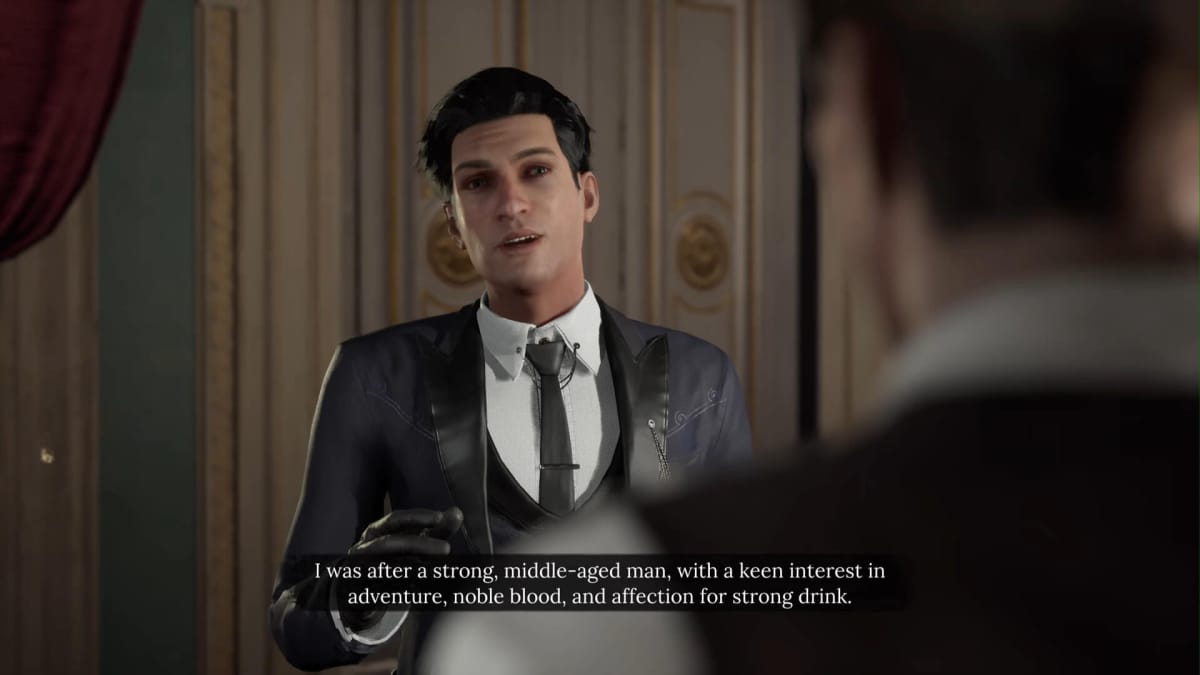
While Sherlock Holmes Chapter One is a good deal more polished than many other Frogwares games, it's still undeniably pretty janky. Roaming around the open-world results in near-constant stuttering, pop-in, and jerky animation. Dialogue lines sometimes play over one another or get cut off, and character models frequently glitch out, resulting in pretty amusing clothing screw-ups (Sherlock's coat got stuck to his arm on more than one occasion for me). This isn't a deal-breaker in a detective game, and the combat does manage to avoid this glitchiness for the most part, but it can be a touch immersion-breaking at times.
Despite these wobbles, and a few inconsistent moments in voice acting, Sherlock Holmes Chapter One's solid writing and great storytelling carry it through. This version of Sherlock is immensely endearing. He's clipped, occasionally snarky, and impatient, but there's a human element to him that is rarely explored in the character. Part of that is down to Jon, his companion, who very much is not Watson. He's mischievous, sparky, and human, always ready to bring Sherlock down a peg if he's getting too high and mighty. The dynamic between the two sustains a lot of the story; it's nice to see Sherlock interacting with someone who isn't constantly in awe of him for once.
Sherlock Holmes Chapter One | Final Thoughts
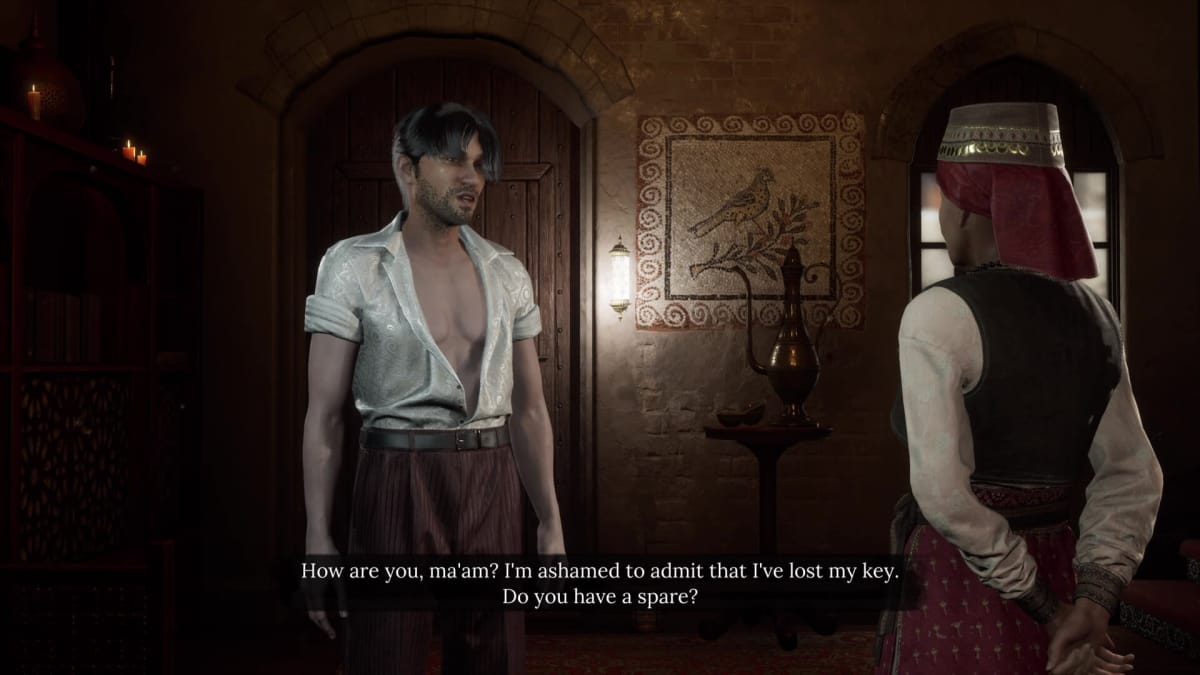
Like its main character, Sherlock Holmes Chapter One is usually great and occasionally frustrating. The combat is lackluster and the open world doesn't have much to offer, but there are more than enough moments of sheer detective ingenuity and satisfaction to offset these issues. There's also a powerful, emotional story at Chapter One's core, one that made me forgive many of its flaws once the credits rolled. Frogwares is a developer worthy of respect; it continually attempts to innovate and push its medium forward. It doesn't always succeed, but happily, Sherlock Holmes Chapter One represents a big step in the right direction. The Case of the Open-World Detective Game is one Frogwares should be proud to have solved.
TechRaptor reviewed Sherlock Holmes Chapter One on PlayStation 5 using a code provided by the developer. It's also available on PC and Xbox Series X|S. A PlayStation 4 and Xbox One version are due out later.
Review Summary
Pros
- Excellent Deductive Gameplay
- Plenty Of Player Freedom
- Compelling Central Mystery
- Great Side Content
- Surprisingly Powerful Story
Cons
- Empty Open World
- Weak Combat
- Technical Issues
Have a tip, or want to point out something we missed? Leave a Comment or e-mail us at tips@techraptor.net
